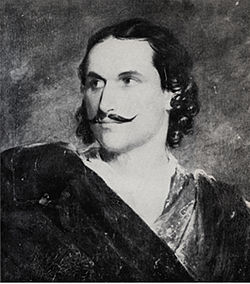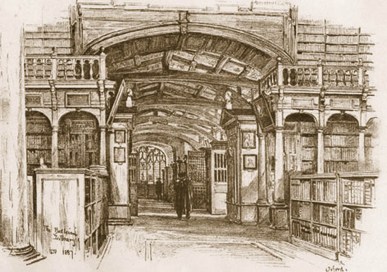Edward Gibbon, Memoirs of My Life:
“My next publication was an accidental sally of love and resentment; of my reverence for modest genius, and my aversion for insolent pedantry. The sixth book of the Aeneid is the most pleasing and perfect composition of Latin poetry. The descent of Aeneas and the Sibyl to the infernal regions, to the world of spirits, expands an awful and boundless prospect, from the nocturnal gloom of the Cumaean grot,
Ibant obscuri sola sub nocte per umbram,
to the meridian brightness of the Elysian fields;
Largior hic campos aether et lumine vestit
Purpureo—
from the dreams of simple Nature, to the dreams, alas! of Egyptian theology, and the philosophy of the Greeks. But the final dismission of the hero through the ivory gate, whence
Falsa ad coelum mittunt insomnia manes,
seems to dissolve the whole enchantment, and leaves the reader in a state of cold and anxious scepticism. This most lame and impotent conclusion has been variously imputed to the taste or irreligion of Virgil; but, according to the more elaborate interpretation of Bishop Warburton, the descent to hell is not a false, but a mimic scene; which represents the initiation of Aeneas, in the character of a law-giver, to the Eleusinian mysteries. This hypothesis, a singular chapter in the Divine Legation of Moses, had been admitted by many as true; it was praised by all as ingenious; nor had it been exposed, in a space of thirty years, to a fair and critical discussion. The learning and the abilities of the author had raised him to a just eminence; but he reigned the dictator and tyrant of the world of literature. The real merit of Warburton was degraded by the pride and presumption with which he pronounced his infallible decrees; in his polemic writings he lashed his antagonists without mercy or moderation; and his servile flatterers, (see the base and malignant Essay on the Delicacy of Friendship,) exalting the master critic far above Aristotle and Longinus, assaulted every modest dissenter who refused to consult the oracle, and to adore the idol. In a land of liberty, such despotism must provoke a general opposition, and the zeal of opposition is seldom candid or impartial.
A late professor of Oxford, (Dr. Lowth,) in a pointed and polished epistle, (Aug. 31, 1765,) defended himself, and attacked the Bishop; and, whatsoever might be the merits of an insignificant controversy, his victory was clearly established by the silent confusion of Warburton and his slaves. I too, without any private offence, was ambitious of breaking a lance against the giant’s shield; and in the beginning of the year 1770, my Critical Observations on the Sixth Book of the Aeneid were sent, without my name, to the press. In this short Essay, my first English publication, I aimed my strokes against the person and the hypothesis of Bishop Warburton. I proved, at least to my own satisfaction, that the ancient lawgivers did not invent the mysteries, and that Aeneas was never invested with the office of lawgiver: that there is not any argument, any circumstance, which can melt a fable into allegory, or remove the scene from the Lake Avernus to the Temple of Ceres: that such a wild supposition is equally injurious to the poet and the man: that if Virgil was not initiated he could not, if he were, he would not, reveal the secrets of the initiation: that the anathema of Horace (vetabo qui Cereris sacrum vulgarit, &c.) at once attests his own ignorance and the innocence of his friend.
As the Bishop of Gloucester and his party maintained a discreet silence, my critical disquisition was soon lost among the pamphlets of the day; but the public coldness was overbalanced to my feelings by the weighty approbation of the last and best editor of Virgil, Professor Heyne of Gottingen, who acquiesces in my confutation, and styles the unknown author, doctus – – – et elegantissimus Britannus. But I cannot resist the temptation of transcribing the favourable judgment of Mr. Hayley, himself a poet and a scholar ‘An intricate hypothesis, twisted into a long and laboured chain of quotation and argument, the Dissertation on the Sixth Book of Virgil, remained some time unrefuted. – – – At length, a superior, but anonymous, critic arose, who, in one of the most judicious and spirited essays that our nation has produced, on a point of classical literature, completely overturned this ill-founded edifice, and exposed the arrogance and futility of its assuming architect.’ He even condescends to justify an acrimony of style, which had been gently blamed by the more unbiassed German; ‘Paullo acrius quam velis – – – perstrinxit.’ But I cannot forgive myself the contemptuous treatment of a span who, with all his faults, was entitled to my esteem; and I can less forgive, in a personal attack, the cowardly concealment of my name and character.”

Like this:
Like Loading...








